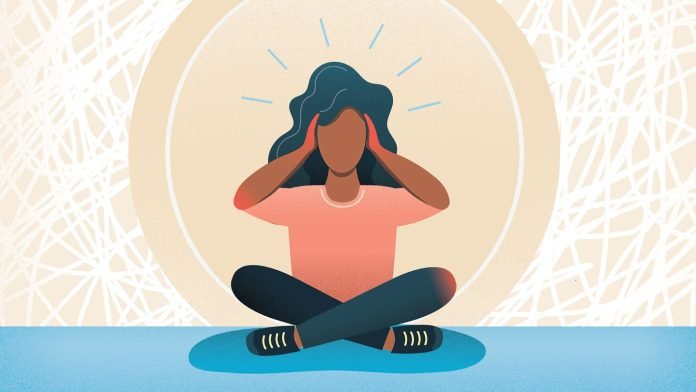Last Updated on April 28, 2024 by Umer Malik
If you’re anything like us, you spend a lot of your time thinking about things that aren’t really important. You worry about work, you fret about the future, and you daydream about what you would do if only life were just a little bit different. While it can be helpful to have these thoughts at times, there’s a limit to how much they can realistically weigh on your mind at once. And when they start to pile up and take over your life, that’s when stress and anxiety set in. In this blog post, we will show you how to tackle stress and anxiety by making you think in a different way. By changing the way you think about problematic situations, you can begin to eliminate their ability to control your life.
Table of Contents
What is stress and anxiety?
The effects of stress and anxiety can be debilitating. They can lead to sleeplessness, weight gain, heart disease, and depression. Yet there are ways to tackle stress and anxiety head-on by thinking in a different way.
When you’re stressed or anxious, your brain tends to rely more on the habitual way of thinking. This is because your brain is trying to protect you from danger. When you’re caught up in the stressful situation, your brain will keep sending alerts about potential threats and dangers until it’s calmed down. This can lead to problems because you don’t have enough room in your mind to consider other options or solutions.
Cognitive behavioral therapy focuses on teaching people how to change their thoughts and behaviors in order to reduce their anxiety or stress levels. CBT can be helpful for a number of different issues, including drug addiction, eating disorders, chronic pain management, and post-traumatic stress disorder (PTSD).
The different types of stress
There are a few different ways to think about stress and anxiety.
- 1. Take a step back. When you’re feeling overwhelmed by stress, it can be helpful to take a step back and assess the situation. Ask yourself: What is the most important thing right now? What can I do to support myself in achieving that goal? What are my options?
- 2. Visualize your goals. One way to reduce anxiety is to visualize your goals and how you will achieve them. This can help you focus on what is important and stay motivated.
- 3. Get organized. When you have too much on your mind, it’s easy to lose track of what’s important and where you are in relation to your goals. Get organized by setting aside specific time each day for tasks that need to be completed, and make sure all related information is at hand when needed.
- 4. Take breaks. When we’re under pressure, our bodies respond by releasing adrenaline and cortisol — two hormones that can make us feel anxious or stressed out. To relieve stress, try taking short breaks every 20 minutes or so: Walk around, take a quick shower, or read something calming for a few minutes.
Types of thinking that can help you deal with stress and anxiety
There are many different ways to think about and deal with stress and anxiety, depending on what works best for you. Here are four types of thinking that can help you:
- 1) Problem-solving thinking. When faced with a problem, try to identify the underlying causes and figure out a solution. This type of thinking can help you work through stressful situations calmly by focusing on solutions.
- 2) Creative thinking. When stressed or anxious, it can be helpful to come up with creative ideas or solutions to problems. This type of thinking can help you feel more in control and empowered when faced with difficult challenges.
- 3) Metacognition thinking. This type of thinking involves monitoring your own thoughts and feelings, as well as the thoughts and feelings of others. It can help you understand why you’re feeling stressed or anxious, and how to respond wisely.
- 4) Mindfulnessthinking. Mindfulness is a form of mindfulness thinking that focuses on paying attention in the present moment without judgment. It has been shown to be an effective way to reduce stress and anxiety symptoms, by helping you focus on positive experiences instead of worrying about negative ones.
Apart from that if you want to know about the Health Benefits of Drinking Hot Water then visit our Health category.
